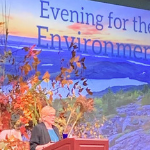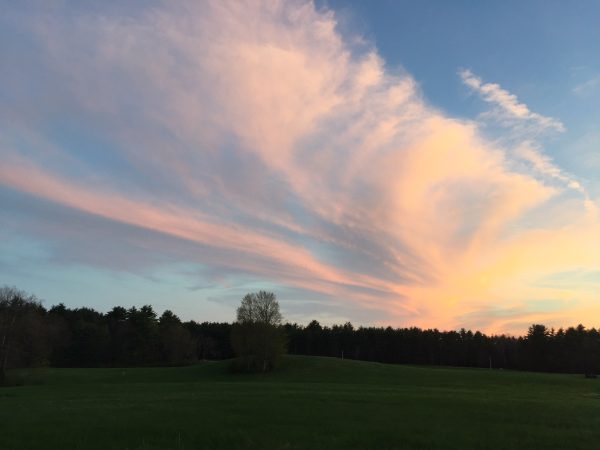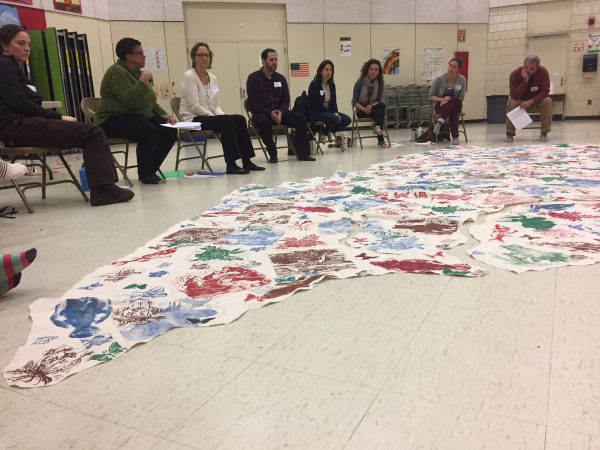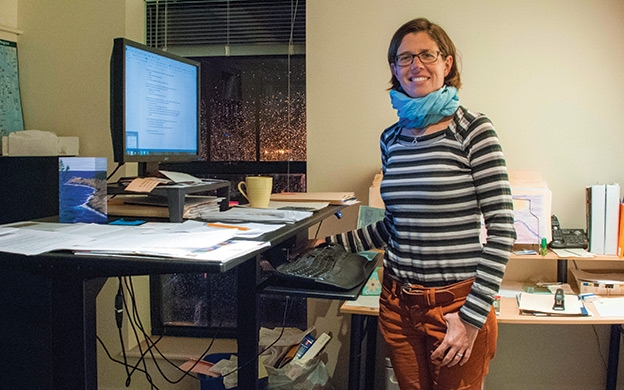Author: smcadmin
March 2020: Reading Picks
READING NOOK: Wondering What to Read Next? We can help ... Check out some of our Spring reading picks.
December 2019: E-Newsletter
Each season helps us focus on and appreciate the new ways we engage with the land and each other. The transition offers us an opportunity to reflect, shift gears and make way for changes to move us forward.

View our December 2019 Newsletter
Collaboration | The Fruits of Our Labor:
One Health: Connections between public health and our environment
Rapid Response for York Land Conservation
The 5th Year of Summer Associates and it rocked!
Archeology and Land Conservation:
Arthur Anderson, Ph.D, Assistant Lecturer at UNE, and Tim Spahr, Founder of Cape Porpoise Archaeological Alliance shared an amazing story about The Cape Porpoise Archaeological Alliance, a partnership between the Kennebunkport Conservation Trust and the Brick Store Museum.
Mark your calendar #Giving Tuesday is December 3rd, 2019:
Celebrate with us and help us reach our #GivingTuesday $5,000 goal!
Upcoming events:
12.4.2019: One Climate Future: Charting a course for Portland and South Portland
1.19.2020: Author and Activist Rick Bass public reading and talk
Voting Matters! An exciting ballot initiative and more.

Election Day is on Tuesday, Nov. 5, 2019. It is not as big of an election year – last year we voted for our Governor, next year we will vote for our next President. But these in between elections are really important for the true ground game, which is the game local conservation organizations are playing every day in the neighborhoods and communities that make Maine such a special place. Vote!
[Photo: Governor Mills speaking at the Maine Conservation Voters/Maine Conservation Alliance Evening for the Environment in October]
CLICK HERE TO READ THE NOVEMBER 2019 E-NEWSLETTER
On the ground news from our members:
-
-
- On the Scarborough ballot: THE LAND ACQUISITION RESERVE FUND
Scarborough Land Trust. - Water is beer’s most important ingredient: MAINE BREWSHED ALLIANCE
Portland Water District.
- On the Scarborough ballot: THE LAND ACQUISITION RESERVE FUND
-
Spreading the word:
-
-
- MAINE WOOD + SUSTAINABILITY TOUR – November 7, 2019
-
WILIWNI, GRACIAS, DUIZENDMAAL DANK, THANK YOU

It is a glorious summer day here in Maine. I am able to look out my office window on Commercial Street in Portland and see the dance of sunlight on the bay. The grass is so green still (not brown as it will be soon), the June blumes are so fragrant, and the daylight just goes on and on. I am grateful to not have to put on a jacket or wear a hat. Every season has blessings, this one seems to have more than others. So, now – out you go! Partake in one of those adventures – jumping off a dock, sea kayaking, or hiking – or sit on the bench outside your office to soak in the warmth and sun, as I am about to do today!
Abenaki, Spanish, Dutch, and English bring to mind the concept of colonization, and our history of De-humanizing different people. At this sad time, we are angered because of actions that have found their way through history time and time again, and now into the present. Genocide, Slavery, Native American Boarding Schools, Internment Camps, Detention Centers. What is it about this practice that stands the test of time, despite the horrors, reparations, lessons, and change?
Conservation has a role to play in our social development towards systems that start with love, kindness, humanity, and respect. Our organization, and many of our member organizations, are working together to learn what that role might be and to start taking steps to address inequity and the heretofore unbreakable circle of time.
Post by Jessica Burton, Executive Director of the Southern Maine Conservation Collaborative.
Building Our Strength By Facing Our Weaknesses

SMCC’s Equity in Conservation Cohort supports environmental organizations and individuals with broadening our understanding of how diversity, equity, and inclusion relate to our work in conservation. The program developed initially with support from, The Fund for Maine Land Conservation providing funding to support a variety of trainings, workshops, and activities as part of this program. The first workshop series SMCC hosted had 23 people from 15 different conservation organizations who participated in the Maine-Wabanaki REACH Workshop. In this workshop, volunteer leaders facilitated discussions and interactive experiences to deepen our knowledge of the Native Tribal experience in Maine past and present. The next phase had a 3-part webinar series with the Avarna Group. These sessions provided us all with language, framework, and tangible strategies to help us as individuals and as organizations become more resilient, responsive, and inclusive. The deep work of acknowledging the privilege and barriers is essential for conservation to remain relevant
Conservation collaborative connects the dots between people and the environment

MaineBiz, January 9, 2017
by James McCarthy
Jessica Burton has been the executive director of the Southern Maine Conservation Collaborative since its founding in 2012. From her office on Portland’s Commercial Street, Burton provides professional support services to 19 member land trusts and conservation organizations in York and Cumberland counties.
The work ranges from providing back office support for all-volunteer organizations that don’t have paid staff to developing outreach programs such as the monthly sustainability series focusing on Maine’s changing climate that the collaborative organized in partnership with the Portland Public Library and Community Network Television 5. The collaborative’s members include those with broad missions such as Maine Audubon or the Saco Valley Land Trust to others having a particular focus, like Portland Trails, or the Presumpscot Regional Land Trust, which serves as a conservation steward for the Presumpscot River watershed and the western shore of Sebago Lake.
In a telling example of its impact, the collaborative helped three all-volunteer land trust members achieve accreditation: Three Rivers Land Trust, Chebeague and Cumberland Land Trust and Oceanside Conservation Trust of Casco Bay. Nationally, of the 357 land trusts that are accredited, only 20 are all-volunteer organizations. Mainebiz recently caught up with Burton at her office. The following is an edited version of the conversation.
Mainebiz: How would you describe the collaborative’s work?
Jessica Burton: Our work is really based on relationship: The relationship I have with the individuals I’m helping, and the relationships that individuals in the collaborative have with each other. We’re sharing the work, essentially, and in a lot of ways we’re trying to facilitate the conversations about that work. It involves talking about what we can accomplish all together and then breaking it down to how individual members might be in a position to do some part of that. In some ways, we’re a hub.
MB: What role can businesses play in the conservation work done by your members?
JB: Obviously, businesses are funding conservation in many ways: They make donations, they sponsor events like races. They also help us market. Rising Tide Brewing Co., for example, created Maine Island Trail Ale. L.L.Bean also does all sorts of great marketing for conservation organizations and land trusts.
But there are other ways businesses can be involved that aren’t as obvious. I think businesses, on the whole, could be more involved in the conversation about the importance of protecting our natural resources and how that benefits their business. One obvious example: For big employers I would think it’s easier for them to recruit good employees if they’re located within or near Portland, which has the Portland Trails network for anyone to use.
Businesses help, too, just by modeling a more sustainable approach to being in this world. Focusing on waste reduction, or employee wellness, are just two ways that businesses help move the conversation along.
MB: How does conservation benefit communities?
JB: In Scarborough, there’s Broadturn Farm. That’s a 434-acre farm purchased in 2004 by the Scarborough Land Trust. It’s a working farm and woodlands that’s been leased to John Bliss and Stacy Brenner, who’ve been farming it for 10 years. They run an incredible business: They have a community supported agriculture program, they sell flowers, they do weddings, there’s a summer camp and during the summer the land trust has a farm-to-table dinner as a fundraiser. It’s really a great place to go to.
Another example: There is a very big project happening in southern Maine with Three Rivers Land Trust. They’re calling it the “Goat Hill Conservation Project.” It’s huge. It’s 3,000 acres in southern Maine, within an hour of Boston, and over the next four years they are hoping to conserve this incredible undeveloped forestland. It runs through a number of towns in southern Maine. It’s still very rural. The opportunity there is really great.
